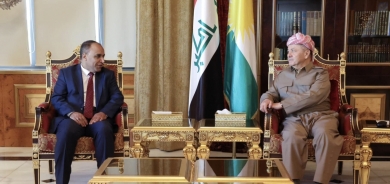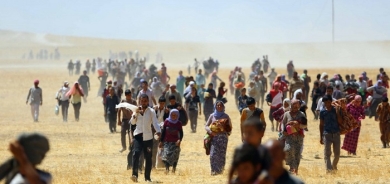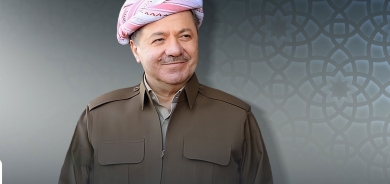The Coming US Withdrawal from Iraq

For example, in the local elections of January 2009, the Kurds lost their artificial majority in the Nineveh provincial government to the Arab al-Hadbaa list because the Sunnis participated instead of boycotting as they had done in the previous elections. The national parliamentary elections in March 2010 seemed to highlight the tensions as politicians on both sides complained of harassment of candidates, pressure on parties, and violence when they campaigned on the opposite side. The new parliament will include 31 members from Nineveh and the Kurds expected to win only 10 this time, their estimated percentage of the population in Nineveh. In actuality, they only won 8. Khasro Goran, a leading local Kurdish official, put it succinctly: “First ethnicity, second political party.” Accordingly, there are those in the KRG who think it would be best to confront Baghdad militarily sooner rather than later when the power equation between the two would be less favorable to the Kurds.
For the past three years, Barzani and al-Maliki have been locked in a bitter on again/off-again verbal struggle over the situation. During a tense meeting in Baghdad in November 2008, for example, Barzani told al-Maliki “you smell like a dictator” and also declared that the Iraqi prime minister was “playing with fire.” In August 2008, these semantic fireworks nearly resulted in open hostilities over the disputed city of Khanaqin situated in Diyala province some 90 miles north of Baghdad on their de facto internal border often referred to as the “trigger line.” Here the Kurdish peshmerga ignored an ultimatum by the Iraqi Security Forces (ISF) to withdraw within 24 hours. After some very tense brinkmanship, the two sides each withdrew some 15 miles north and south of the city leaving security within Khanaqin to be handled by the police.
The two sides have come close to fighting on several subsequent occasions, usually outside of the urban areas where military commanders are more prone to act on their own. In 2009, however, Baghdad troops entered the disputed but mainly Kurdish town of Altun Kupri. When the residents supported by the peshmerga began to demonstrate, the Baghdad troops were told to shoot to kill. Only the presence of U.S. troops stationed nearby prevented bloodshed. Since late January 2010, the then-U.S. commander in Iraq General Ray Odierno and his successor General Lloyd Austin have been trying to build trust between the two sides by using them along with embedded U.S. troops in joint patrols (called combined security mechanisms or csms) and manning 26 checkpoints together. In a few places they even sleep and eat together. These csms are operating in the three provinces of Diyala, Kirkuk, and Nineveh.
Barham Salih, the KRG prime minister, has called these sorts of measures “Band-Aids to build confidence and generate stability.” However, what will happen when the U.S. troops are withdrawn in the near future? Salih has confided that “I think as the Americans are leaving I am very, very concerned.” Others have expressed themselves more strongly. For example, General Turhan Yousef Abdal Rahman, the deputy police chief in Kirkuk, declared that the “the American withdrawal is a deadly mistake. . . . American troops should stay, or there will be civil war.” A Kurdish police commander agreed: “I’m totally confident that the city of Kirkuk will have a civil war within 24 hours after U.S. troops leave. I guarantee it.” Even with the Americans still present, for example, the two side’s dispute over who actually commands the joint patrols. In addition, it is highly unlikely that the fortifications along the line in Kalar and Kifri, northwest of Khanaqin will be dismantled soon or the landmines removed.
This worry about the U.S. withdrawal is all the stronger because it is most unlikely that the United States would leave a base in Kurdistan. Baghdad would never agree to it and the United States itself would not want to find itself so isolated surrounded by Kurdistan’s potential regional enemies. However, some have suggested that after it formally withdraws from Iraq at the end of 2011, the United States will leave behind some private U.S. State Department troops or some other kind of civilian contractors to help ease the transition. On the other hand, the U.S. troop withdrawal just might convince Baghdad and Irbil to reach an agreement on their internal division of powers including their internal borderline.
In February 2010, just before the hotly contested national elections, yet another close encounter occurred in the town of Takleef, a Kurdish controlled settlement in the province of Nineveh. U.S. forces had escorted Atheel al-Nujaifi, the controversial Arab governor of Mosul, into Takleff, after Barzani had already referred to al-Nujaifi as a criminal and declared that a warrant would be issued for this arrest due to a previous incident. The result was the governor alleging an assassination attempt, his troops arresting Kurdish troops, retaliatory arrests of Iraqi troops by the Kurds, and a temporary suspension of the joint patrols and checkpoints throughout the entire province. The United States finally was able to restore order, but how many times can such incidents occur without exploding into actual violence?
The Future
How then will ties between the KRG and Baghdad play out? Clearly, their political future remains in doubt. Whether Iraq will remain truly federal as the KRG demands or federal in name only as the Arabs recentralize the state remains to be seen. However, KRG president Massoud Barzani has unequivocally warned: “We will not allow the Kurdish people’s achievements to be wrecked by the Iraqi parliament. Iraq will fall apart if the Iraqi constitution is violated.” In addition, as Gareth Stansfield and Liam Anderson concluded: “A government founded on Arab nationalism, devoid of Kurdish representation and dedicated to eliminating meaningful Kurdish autonomy in the north, would spell the beginning of the end for the territorial integrity of Iraq.” As suggested above—despite the long governmental impasse that followed the national elections of March 7, 2010— time seems to be on the side of Baghdad. Does this mean that the KRG might be tempted to strike before it is too late? So far, the KRG leadership has shown a wisdom and maturity that argues against any such rash action. Violence and even civil war, if they come, are more likely to eventuate inadvertently.
A major continuing point of disagreement between Irbil and Baghdad is the right of Baghdad troops to transit and operate within the KRG’s territory. Given their horrific past, the KRG insists upon its right to approve or disapprove any Baghdad deployments. Indeed, Article 104/12 of the KRG’s draft constitution declares that the KRG president may only “allow the entry of federal armed forces . . . to the [KRG] region when needed with the approval of the Parliament of Iraqi Kurdistan provided that their tasks and the place and duration of their presence shall be specified.” Baghdad, of course, takes a contrary position, maintaining that Article 110/2 of the Iraqi Constitution dealing with the exclusive federal powers allows it to deploy its troops anywhere in Iraq for “establishing and managing armed forces to secure the protection and guarantee the security of Iraq’s borders and to defend Iraq.” Although the constitutional disagreement continues, clearly any attempt by Baghdad to deploy its troops in the KRG would be viewed by the latter as a casus belli.
The symbiotic relationship between the Irbil and Baghdad military, however, constitutes an important factor that might prevent the two from falling into actual conflict. For example, “Peshmerga troops have been converted into Iraqi Civil Defense Corps (ICDC) units, Iraqi National Guard and Iraqi Army units, Environmental and Forest police, Department of Border Enforcement units, and Police. . . . Probably the largest Peshmerga transformation initiative has been the transfer of large numbers of Kurdish troops from Peshmerga formations into the Iraqi Army.” Baghdad even “has accepted in principle the responsibility for funding the Peshmerga, as memorialized in the Iraqi budget framework laws for 2007 and 2008.” However, the two sides have not yet agreed on any funding formula. Not to be deterred, Irbil has also asked Baghdad to pay pensions for some 90,000 peshmerga retirees.
Although “there is a fair amount of suspicion among non-Kurds of Kurdish intentions . . . it appears that Kurdish units in the Iraqi army have demonstrated greater loyalty to Iraq by their actions than many of their Arab counterparts.” Indeed, after a detailed study of the KRG security forces including its Peshmerga (regular army), Lt. Colonel Dennis P. Chapman concluded that “an open breach between the Kurdistan Region and the federal authorities . . . need never occur, given even a modicum of flexibility and restraint on both sides.” Indeed, “the central Government and the [Kurdish] Region have shown a remarkable ability to defuse (or at least sidestep) potentially explosive issues and to cooperate on many important matters.”

 Michael Gunter
Michael Gunter






